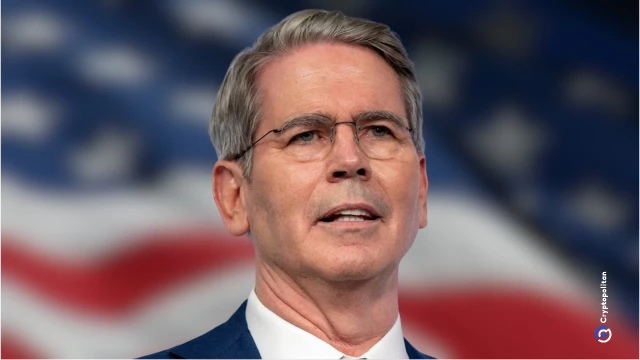
US to allow crypto ETPs stake and share crypto rewards with retail investors
Cryptopolitangeneral
The U.S. Department of the Treasury and the Internal Revenue Service (IRS) have released new regulatory guidance that explicitly permits cryptocurrency exchange-traded products (ETPs) to stake underlying digital assets and distribute the resulting staking rewards directly to retail investors.
📋 Article Summary
Unlocking Crypto Investment Opportunities: The Transformative Impact of U.S. Regulatory Guidance on Crypto ETPs
In a groundbreaking move, the U.S. Department of the Treasury and the Internal Revenue Service (IRS) have issued new regulatory guidance that paves the way for cryptocurrency exchange-traded products (ETPs) to engage in staking activities and distribute the resulting rewards directly to retail investors. This landmark decision marks a significant milestone in the evolution of the cryptocurrency ecosystem, promising to unlock a wealth of opportunities for individual investors.
The ability for crypto ETPs to stake underlying digital assets and share the rewards with retail investors represents a transformative shift in the industry. Staking, a process where cryptocurrency holders lock up their assets to help validate transactions on a blockchain network, has traditionally been the domain of sophisticated institutional investors and tech-savvy individuals. By allowing ETPs to participate in staking, the regulatory guidance opens the door for a broader range of investors to access and benefit from this lucrative revenue stream.
This development is particularly significant in light of the growing institutional adoption of cryptocurrency. As major financial institutions and investment funds increasingly allocate capital to digital assets, the availability of crypto ETPs that can distribute staking rewards to retail investors becomes increasingly valuable. Investors who may have been hesitant to navigate the complexities of direct crypto ownership can now gain exposure to the potential benefits of staking through these regulated investment vehicles.
Moreover, the regulatory guidance underscores the growing maturity and acceptance of the cryptocurrency industry within the traditional financial system. By explicitly permitting crypto ETPs to engage in staking activities, the U.S. government is acknowledging the legitimacy and viability of digital assets as a viable investment class. This move is likely to boost investor confidence and drive further mainstream adoption of cryptocurrencies, as individuals can now access the potential rewards of staking through familiar and regulated investment products.
The impact of this regulatory change extends beyond individual investors, as it also has significant implications for the broader crypto ecosystem. By incentivizing the growth of crypto ETPs and their staking activities, the guidance may lead to increased liquidity and stability in the digital asset markets. As more capital flows into these investment vehicles, the demand for the underlying cryptocurrencies is likely to increase, potentially driving up their prices and enhancing the overall market capitalization.
Furthermore, the ability of crypto ETPs to distribute staking rewards to retail investors may also spur innovation and competition within the industry. Fund managers and investment firms may be compelled to develop increasingly sophisticated and attractive products, offering investors a diverse range of options to participate in the staking economy. This, in turn, could lead to improved accessibility, transparency, and risk management for individual investors, ultimately strengthening the overall crypto ecosystem.
In conclusion, the new regulatory guidance from the U.S. Department of the Treasury and the IRS represents a transformative shift in the cryptocurrency landscape. By allowing crypto ETPs to stake underlying digital assets and share the rewards with retail investors, this decision opens up a wealth of investment opportunities and has far-reaching implications for the industry. As the crypto ecosystem continues to evolve and gain mainstream acceptance, this regulatory change is poised to drive further growth, innovation, and adoption, ultimately benefiting both individual investors and the broader digital asset market.